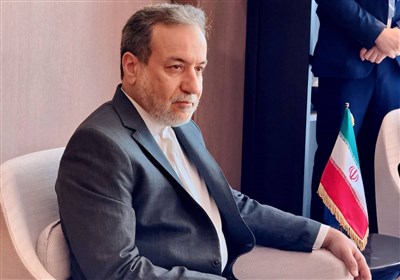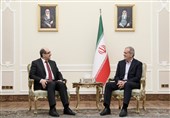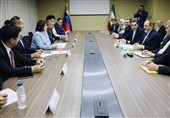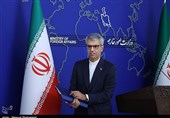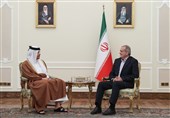Israel Using ‘Threat of Attack’ to Scare Protesters amid Domestic Crises: US Analyst
TEHRAN (Tasnim) – Benjamin Netanyahu is using the ‘tactic of threat of attack’ against Israel by Hezbollah to make its people frightened of each other's shadow, deflect their attention from the regime’s domestic crises, and force protesters to leave the streets, an American political analyst said.
“A credible threat of attack is a common tactic of weak leaders to distract the populace from their corruption. That is likely the case here. The Zionist regime sent a message to international officials saying they don't want a confrontation with Hezbollah while Israeli officials were blustering about holding Hezbollah responsible for border incursions. That's certainly a mixed message but one that appears to reinforce the theory that the alleged skirmish did not take place as the Israelis described,” Charles Dunaway told Tasnim in an interview.
Charles Dunaway is an American radio host and journalist who runs an online political forum. After a career as a systems analyst, Charles began a new career in radio journalism, joining the staff of a local station and becoming News Director. In 2016 he began producing his own program focused on international affairs called Wider View.
Following is the full text of the interview:
Tasnim: Israeli and Western media outlets on Monday said that the regime’s forces had thwarted an effort by Hezbollah fighters to infiltrate into the occupied territories through Shebaa farms along Lebanon’s southern border. Hezbollah later issued a statement and said the Tel Aviv regime, by such “incorrect” accounts, is seeking to fabricate "fictitious victories”. What do you think?
Dunaway: If Israel had actually killed Hezbollah fighters, it would have released photos to prove it. If they had won a battle against Hezbollah, then they would have released video evidence to prove their military prowess. Given the tense political situation in Israel due to the Netanyahu government's failed response to the COVID-19 pandemic and the corruption charges against the Prime Minister, it is much more likely that these are fictitious victories. US General Mark Milley visited with Israeli leaders recently to discuss 'confronting Iran and its allies in the Middle East, especially the threat posed by the Lebanese Hezbollah'. Perhaps this is a ploy to amplify that threat.
Tasnim: Experts believe that the media hype and psychological warfare against Hezbollah have domestic consumption for Israel as the regime is facing political deadlock and crisis over Netanyahu’s corruption and mishandling of the coronavirus pandemic. What are your thoughts on this? It seems that the regime is escaping forward to avoid its crises. Do you believe so?
Dunaway: A credible threat of attack is a common tactic of weak leaders to distract the populace from their corruption. That is likely the case here. The Zionist regime sent a message to international officials saying they don't want a confrontation with Hezbollah while Israeli officials were blustering about holding Hezbollah responsible for border incursions. That's certainly a mixed message but one that appears to reinforce the theory that the alleged skirmish did not take place as the Israelis described.
Tasnim: Last Monday, Syrian media reported new Israeli aggression in which Israeli forces fired missiles from the Syrian Golan Heights, killing a member of the Hezbollah movement. Hezbollah vowed to retaliate. Terrified of Hezbollah’s retaliation, Israel sent a message to the Lebanese resistance movement saying that it didn’t intend to kill the movement’s member Ali Kamel Mohsen, according to Al-Mayadeen TV channel. Israel’s military has taken a number of steps to increase preparedness after the announcement of Mohsen’s martyrdom. Why do think the Israel regime avoids entering into another war with Hezbollah? Do you believe that Israel is in fear?
Duaway: I think the timing for war is not right for the Israelis. Certainly the Israeli people are not eager for war with COVID-19 infections and fatalities rising rapidly. The government was weak to begin with after the multiple elections and a successful Hezbollah attack might cause it to fall. There's also the US role to be considered. The US is particularly vulnerable in the region, as recent attacks on US troops in Iraq have demonstrated. The calculus in Washington involves the political implications of heightened tensions or all-out war on the November election, and the pressure from the Zionist lobby. It remains to be seen how the Israelis will react when Hezbollah takes revenge for the martyrdom of their fighters.


